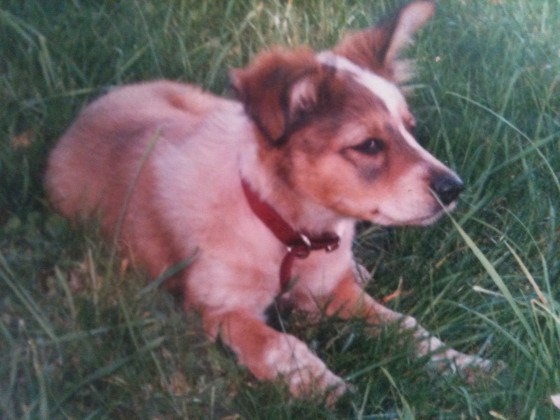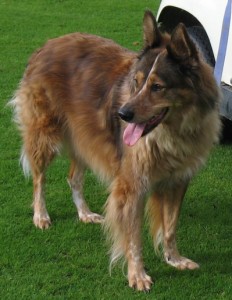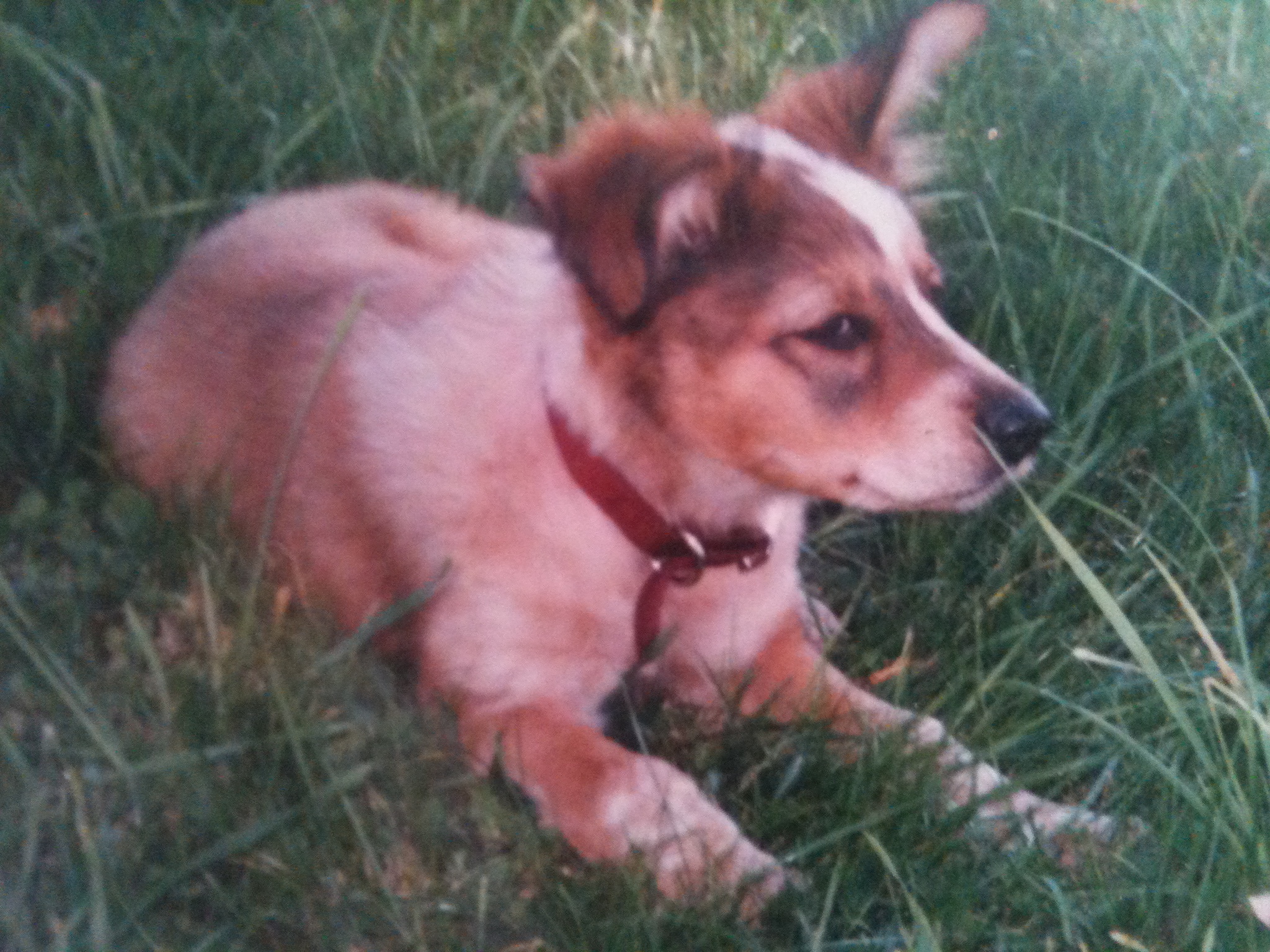
The last drops quivered, and resisted their fall, from the bottle’s lip towards the glass. I heard the words in my head again: “This, too, shall pass.” This ancient axiom has shadowed my consciousness for longer than I can recall, and in that moment, I was bathed in its radiant — if painful — veracity. It is not every day that I feel compelled to pull a special bottle from the cellar, and for the first time, it was a choice that I wished I did not have to make.
We have a very modestly sized wine cellar, constructed with the intent to imbibe, not to invest. It is also a modestly priced selection based on pathological bargain hunting and a desire to explore worlds that I may not necessarily have the opportunity to personally visit during my lifetime. There are a few special bottles, waiting for special events, none of which are on the calendar. This time, the kind of bottle I thought I wanted was not in stock, and so I had to select something else appropriate, because it was the only chance I would have to honor the moment.
Just after the New Year 2012, when my wife and I felt that we had finally moved past a year of challenge and loss, we were forced to say goodbye to a very dear friend. It occurred unexpectedly. We were shattered. A farewell seemed in order, and the wine needed to fit, even though it was not clear that I would smell anything through the numbness, and taste anything besides the salinity of my own tears. But the choice of the wine mattered. The intention was not to drown sorrow, rather to concentrate, be aware of the moment, and to ease acceptance of a new reality.
15 years ago, I endeavored to learn about the Italian wines of the Toscana Maremma region, because of a dog. We had adopted a puppy who fit our abstract idea of a good pedigree, and she proceeded to run us beyond the bounds of what we thought our world was bordered by. I did not have pets as a kid, and the young cat I had taken in when I moved to Vermont in 1991 was my first intimate look into the animal world. Looney Cat was in many ways beyond my comprehension, and so all I could do was give care as best I could, in the time that I knew her. And while I might not have understood this aloof animal, I can now say she opened a door that I previously did not know existed. Passing through that portal gave a whole new meaning to the idea of sentience, and to the responsibility of humanity.
I only knew that cats were rather independent. I had been resisting the responsibility associated with a canine addition to our young family, even though I knew how much my wife wanted a dog. I somehow managed to open myself to the idea — could it be that much more challenging than keeping a cat? — and found a connection to a local farm that had three litters of puppies soon arriving thanks to, as it was explained to me, “three really nice girl dogs who are sisters, and one really bad boy dog.”

Mitchell’s wayward father was one of the pack that ran the outer fences on the farm, peeing their way around the perimeter to keep the coyotes away from the sheep and llama pastures and goat paddocks. He was half Border Collie, half Aussie Shepherd. Her mother was one of the herding dogs who actually worked for a living. She was half Border Collie and half Italian Maremma. Half what? The farm lady pointed at the barn just in time for me to see a great white form leaping up against a barrier, on hind legs putting its head a good foot above mine, and releasing a bark that hit me more in the diaphragm than ears. “That’s her grandmother. She leads the pack that guards the border.”
We had not picked Mitchie from the litter, rather, the lady from the farm had asked us several questions in the weeks before she was even born, and based on how we had answered and who we were, she selected this first and only red haired one, for free adoption. She didn’t want money; she wanted the best fit for this dog. It’s the kind of gift that is hard to understand, impossible to explain, and probably best to accept without question. I was lucky that she was my first dog, because she was trained from birth, precocious, kind, mischievous, and wise, and it was I that needed to be taught to see the world differently, learn to obey natural laws, and to understand how to play my role in the relationship.
It’s now been a exactly a year since we had to help her on her way, beyond the border of our lives, which she had circled and protected. I’ve held this piece in stasis first out of an inability to compile it sensibly, with difficulty due to the pain, then caught within the flow of life moving us forward, just as she would have urged us, on the long walks that were one of her signatures. Now I have more perspective, and a couple of very recent and coincident items of note made me realize that I might finally be able to finish the bottle that I opened that night.
I had gone looking for the right wine, but I didn’t have to search long. One bottle seemed to present itself, almost asking to participate. It was fortunate, because I was not in a place where good decision making was possible. The version of Sangiovese called Morellino di Sconsano that hails from Maremma in Tuscany was the wine I would have chosen, but we didn’t have any at the time. You could say that a good neighbor of this wine stepped forward to fill the void.
Azienda Agricola Scarzello makes some very nice Barolo and Barbera that I have been fortunate to enjoy in the presence of the winemaker, yet it was the simple and honest Dolcetto D’Alba that we had in our cellar. It was the very last bottle we had, and more importantly, likely the last we ever would. My understanding from the importer was that most of the Dolcetto in the small family vineyard was to be replaced by Nebbiolo due to demand, and only a very small amount of “the little sweet one” would be preserved for home consumption. I knew that it would not be a challenging wine, but I knew it could be a Vino da Meditazione.
That’s the term Italians use for a wine that stops us in our tracks, requires contemplation, urges us to consider not only what we are drinking, but what we are feeling and thinking.
Most wine lovers would not put this Dolcetto in that category. And yet here was a lesson from Mitchie, who, in the time I had known her, had taught me volumes about sensitivity, awareness, communication, and the essence of the moment. If it sounds unusual to hear that a dog could impart such lessons, I can only say that it’s true, and that animals, as ambassadors of the natural world, have much to share with us. Through her I learned that any wine is a wine for meditation. It not about a wine overtly demanding the attention of its taster, but rather attention that is offered by us, and in doing so, allows us to grow beyond what we know of reality. In Zen, there is a term, Shoshin, “beginners mind.” It relates to our need to approach a subject with openness and without preconceived notion, even if possessing a high level of experience.
Mitchell was a steel trap of memory for people, places, animals, and hidden bones, but not bound by habit and each day was a brilliant new one, even in her elder years. Short of gnawing a bone and burying it to age for future pleasure, I knew of no better way to quietly honor my friend and teacher.
And so, in the last several days, I observed a pair of signs. They came from a pair of wine people whose opinions I respect, and these signs let me know that it was time to complete what had begun. What I am about to relate is not about dropping names, or hanging on. It is about awareness and recognition of connection, however fleeting, to our relationships in the world, and just maybe, how a glass of wine can serve as a simple reminder.
In the summer of 2011, I attended the Wine Bloggers Conference in Virginia, and in grabbing opportunity by way of a lone open chair, had the distinct pleasure of sitting at a gala dinner with wine writer Eric Asimov. Eric has a book that is now being well received and recently published a piece about Dolcetto for the New York Times. He had been a keynote speaker at the event, and had urged burgeoning bloggers and veteran wine writers alike to move beyond reliance on tired tasting notes, and to produce unique and inspired work rather than treading well worn paths. This meal took place less than a month after I had been in Florida to visit my grandfather in the hospital, only to find myself helping him into hospice, and quickly into passing. Pop was a sweet man. He was my first and only wine idol, with a jug on the floor next his feet at the dinner table when I was young , and sharing my own bottled discoveries with me when I was grown. I was in a raw place when I spoke with Eric at WBC 2011. We had a wide-ranging conversation, first about the Vermont summer camp just up the road from my home that he’d attended as a kid, and more coincidentally, our shared deep appreciation and long dedication to the martial discipline of Aikido. Our chat, and our natural companionship, allowed me both to forget the pain and to take pleasure in how much Pop would have enjoyed hearing me recount the evening.
Last week, while my wife was at the veterinarian with the new puppy we recently adopted, she and the doctor were discussing the wrestling matches that the pup was having with the abandoned kitten we took in after the locally devastating floods from Hurricane Irene. This kind and gentle vet had helped us through that shocking day when, out of nowhere, Mitchell started crashing due to internal hemorrhage. The vet cared for us when our two senior cats also went on their ways in quick succession, too soon, just weeks after their friend had gone before them. When our vet heard that I’d had a wine tasting video busted up by the youthful duo’s antics, and found out that I was more into wine than just the homemade stuff I brought to their office as gifts, she asked if I had heard of an old friend of her husband’s and hers.
She was talking about wine writer Alice Feiring. It was conveyed that, yes, curiously enough we were acquainted with this special person, who is dedicated to encouraging the exercise of making distinctions between wines of artisanal origin and those borne of artifice. Debates about “Natural Wine” aside, the act of attempting to clearly discern the reality of what we consume and assimilate is a powerful practice. We had shared a special dinner with Alice this past summer on a classic country hilltop evening in Barnard near our home, and I’d also had the pleasure earlier in the year of sitting with her at a lovely natural wine dinner in Manhattan. Both meetings had been balms, and grounding reminders, after a difficult year before.
Learning of Alice’s connection to our caregiver, and the publishing of Eric’s article on Dolcetto, in such close proximity to the anniversary of our farewell, piqued my attention. What might be seen simply as just a couple of degrees of separation, can also be interpreted as serious strands of connection. Threads that can only be appreciated if we take the time to inhabit the moment, and allow life’s lessons to become manifest. A glass of wine offers us the opportunity to practice being fully present, to be sensitive to what is in front of us, to honor the work that brought the moment into being, and discern what can be learned then transformed into wisdom for the future. It is an exercize that can be extended to interactions with those most close to us, and with practice, to all the intersections between the world and our lives, before they too shall pass.
each opened bottle of wine reaches empty
each forged relationship is someday unwrought
each connection to reality is eventually severed
beginnings and endings can never savor
the sweet delicacy of life in between

